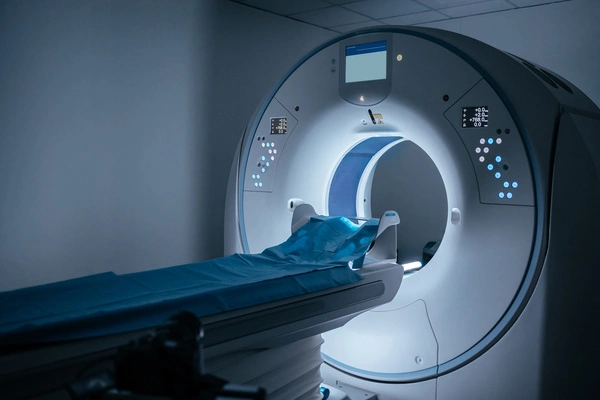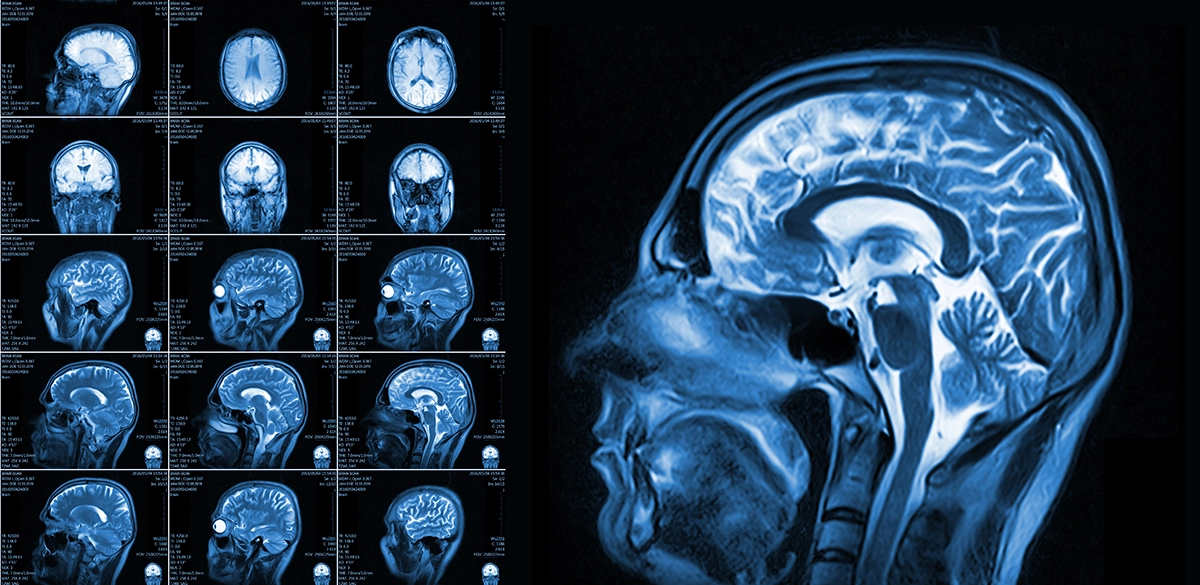
As doctors, Gina Siddiqui and Tom Roberts get a lot of questions from friends and family when someone they know or someone those people know get a life-changing diagnosis like cancer.
The cancer treatment process is long, complicated, and difficult to navigate, and we wish everyone had a doctor friend they could ask for advice, so Dr. Siddiqui, a membership medicine physician focusing on personalized medicine, sat down with oncologist Dr. Roberts from Harvard Medical School and the Center for Advanced Head and Neck Cancers to talk about what to do first when you get a cancer diagnosis, second opinions, and controlling what you can control.
The most important factor when choosing a doctor or doctors to treat your particular cancer is to choose someone who regularly treats that specific type of cancer, and who is experienced with the kind of treatment you are going to use.
Your cancer care could take place at a community clinic or an academic clinic, and involve one or several different types of oncologists, including medical oncologists, radiation oncologists, and surgical oncologists.
A medical oncologist is a doctor who treats cancer with chemotherapy or immunotherapy drugs, often given by IV or pills. A radiation oncologist treats cancer with radiation therapies, and a surgical oncologist treats cancer by surgically removing it. Depending on your type and stage of cancer, you may need more than one of these kinds of specialists, and early on when you are deciding on your treatment plan, you may want to consult all three before you make a decision about what type or types of treatment to use.
At a community oncology clinic, doctors treat multiple types of cancers. For example, an oncologist at a community clinic may treat lung cancers, gastrointestinal cancers, and head and neck cancers, whereas at an academic medical center, subspecialists or subsubspecialists focus on and treat very specific kinds of cancers. For example, Dr. Roberts treats only patients with head and neck cancers, that is, patients with cancer in their mouth, their nose, their nasopharynx (behind the nose), the throat, or the thyroid.
The rarity, stage, and prognosis of your cancer are factors in determining which kind of oncology center can best help you, as is the experience of the oncologists at your local clinic with your type of cancer.
If you do not live near an academic medical center and decide to to travel to one for your cancer care, it is common for people to decide on a treatment plan together with their academic center doctor and then return home to implement the treatment with a local doctor at a community oncology clinic, checking in periodically with their academic center doctor. This can allow for more comfortable care at home, while still receiving the benefits of cutting-edge medicine based on the latest research, detailed knowledge of subspecialists, and information about and access to clinical trials and studies.
Finally, don’t underestimate the importance of family and friends in your care team--they’re with you more than your doctor and can help you navigate the schedule disruption, exhaustion, and dealing with life through the side effects of early treatment.
Dr. Siddiqui and Dr. Roberts also suggest you take a friend or family member to early appointments. In their experience, patients often don’t realize how helpful it is to have a second set of ears when there’s a lot of new information to catch, that is coming at you when you’re still feeling overwhelmed by the new cancer diagnosis. The scale, seriousness, and sheer number of decisions to make, all while you’re probably feeling sick and drained, make it nearly impossible to absorb and critically appraise everything alone when hearing all the advice for the first time.
Drs. Siddiqui and Roberts suggest having a friend keep track of the questions you want to ask at your next appointment, the options your doctor presents at each appointment, and what next step to take. When a friend or loved one joining isn’t possible, they also suggested recording important appointments and taking notes in real time. At the end of an appointment, you can use the notes as a way to ask: “These are the main points I’ve gathered. Am I missing anything?”
In general, getting a second opinion, especially from a doctor very experienced with your specific type of cancer, is wise. A partial exception is when you have a kind of cancer that requires essentially emergency treatment, such as a new diagnosis of leukemia, or a rapidly growing tumor in a cavity of your face or body--you can still seek a second opinion, but seek it while you’re getting treatment. You will be safer and better off starting treatment for a fast-growing cancer immediately, even if you later decide to change treatments.
In some cases, for some cancers, the course of treatment is very clear from studies and clinical experience, and most doctors will agree on what you should do. For others, there are options but the choice between them is less clear, and your doctor will discuss what is and isn’t known and the potential tradeoffs between options with you. Your oncologist should help you understand which case you’re facing--where there is relatively more certainty in the best treatment course or less. And if you're not sure about something, Dr. Siddiqui and Dr. Roberts would like to remind you that you should feel empowered to ask!
Many medical centers save tissue from biopsies so that it can be used in seeking multiple opinions, and expertise from multiple types of oncologists. You can ask the center where you had your biopsy about these practices, and if there’s any chance at all you’ll want additional tissue, request ahead of time that they do this.
One benefit of an academic oncology center can be clinical trial enrollment. This is usually not a first choice unless there are not more reliable, more tested, options for your particular cancer or stage of cancer, but can be a good option if you have a rare cancer, an advanced stage of cancer, a cancer that is not responding to conventional therapies, or a cancer you have reason to believe will not respond well to conventional therapies based on initial testing.
Clinical trials change all the time, in terms of what drugs are available for what conditions, what criteria you would need to meet to be included, and where the trial would take place, so ask your doctor about clinical trials when you’re ready to enroll in one relatively soon.

At the Center for Advanced Head and Neck Cancer, Dr. Roberts treats some cancers so rare that there are only a few hundred cases a year in the entire United States. But even common cancers have many subvariants, some of which are more rare or require special considerations. Dr. Siddiqui recommends asking your oncologist how common your cancer is, and whether it has any features that make it atypical.
Sources of information about rare cancers include:
Patient groups get much more specific and precise than say lung cancer, or even non-small cell lung cancer. There are groups, for example, for EGFR-positive lung cancer. There are ethnic-specific groups for certain cancers. These groups give not just a sense of community, but often are attuned to unique genetic or social factors that affect your treatment. If you’re looking for information about a very specific form of cancer that you have, you may find it from doctors and fellow travelers both. And if your cancer is rare or has unusual features, it’s fairly likely that you really will find studies and information about your highly specific condition that your doctor hasn’t yet.
Dr. Roberts advises finding community and information online but warns of misinformation. One thing he hears a lot, he says, is patients asking whether they should eliminate sugar from their diet completely for cancer treatment. This persistent rumor, based on misunderstood science, is an example of how misinformation often spreads faster than accurate information. Bring your doctor the information you find and discuss how it applies to your treatment.
Who gets the best outcomes?
Surprisingly, getting the best cancer outcomes isn’t always about spending the most money or going to a brand-name magnet hospital.
The patients Dr. Roberts sees get the best outcome for their type of cancer often:
If research and advocacy are overwhelming while you’re going through treatment, remember that your friends and family are part of your care team and you’re not alone. Enlist some help.
That was a lot of information, and there’s going to be even more flying at you from friends, family, doctors, and well-meaning strangers on the internet, at a time when you’re least equipped to process it all. When you have so many competing demands on your time and energy, Dr. Roberts and Dr. Siddiqui emphasized prioritization. Work with your care team to find out the one most important thing you need to do next, and focus on that.
Dr. Gina Siddiqui treats patients who are facing a major decision in their health but don't know where to start or can never seem to make it stick. She is the founder and lead physician of Carte Medical, a membership-based boutique medical practice in Tysons Corner and San Francisco, focused on how your condition is not just like the statistically average patient’s.
Delle Herrera is a healthcare writer with a rare condition and a molecular biology degree, who writes n of 1 medicine content at Carte Medical.